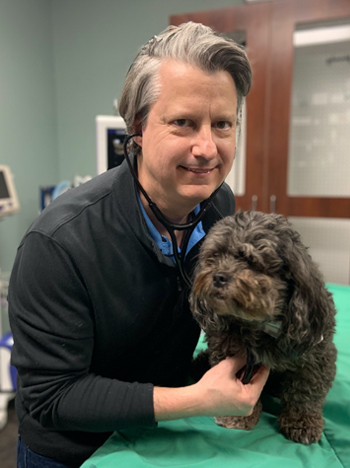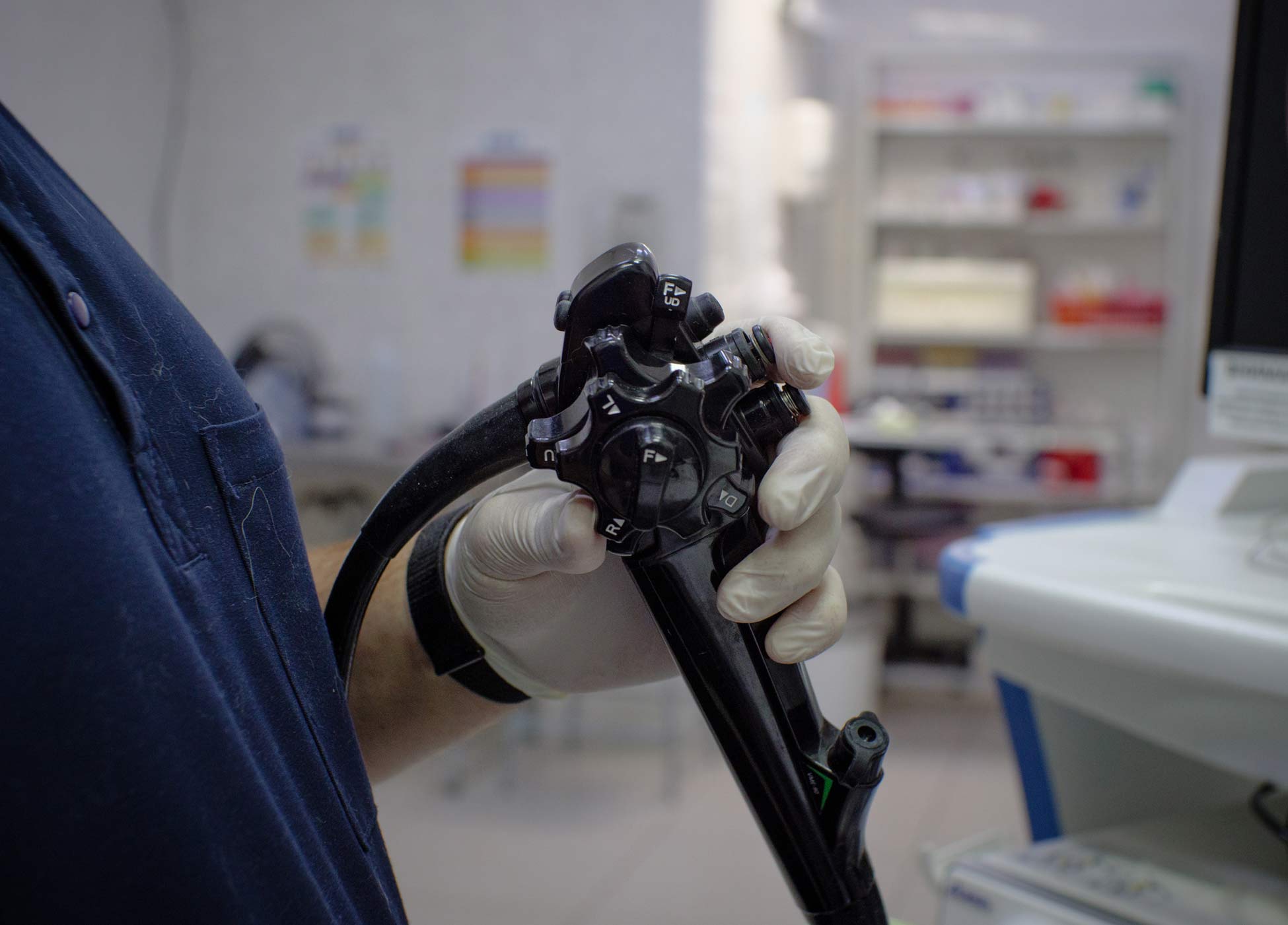Frequently Asked Questions
Let us help you find an answer.
Prior to visiting Savannah Vet, take a look through our frequently asked questions to familiarize yourself with what to expect at an appointment, our payment policy, and more details in case your pet needs to be hospitalized.
A veterinary internist* specializes in diagnosing and treating serious or complex diseases that often affect multiple organs. These diseases can be either chronic, having been present for many months or years, or could be imminently life-threatening having been only present for hours. Veterinary internists treat patients medically and do not perform surgery.
*Veterinary internists have completed additional training after receiving a four-year Doctorate in Veterinary Medicine (DVM) degree. This training includes a one-year internship, followed by a three-year residency in internal medicine. Completion of the residency requires clinical training and teaching at a veterinary school or similar veterinary specialty hospital. Also required is the writing and publication of veterinary-related research, and finally the passing of two separate written exams administered by the American College of Veterinary Internal Medicine (ACVIM). Upon successful completion of the internship and residency requirements, and successfully passing the required examinations, a veterinarian becomes recognized and awarded Diplomate status by the ACVIM.
No! Many people believe that an “internist” is the same as an “ultrasonographer.” In fact, ultrasound is only a small part of what internists do. Through additional residency training, specific knowledge, and focused experience, internists provide your pet with additional and sometimes alternative treatment options during their road to recovery.
Your pet may benefit from seeing one of our internists if a disease or symptom remains undiagnosed, the condition requires advanced imaging, endoscopy, or specialized treatments, or if your pet has multiple diseases present. Your pet may also benefit from seeing us if they have not been responding as expected to treatments already prescribed by your family veterinarian.
As specialists in veterinary internal medicine, our focus is treating complex, multiorgan, chronic, debilitating, or acute and imminently life-threatening diseases in dogs and cats. Veterinary internists do not perform surgery.
The most common issues that we diagnose and treat include GI/gut-related issues, urinary issues (UTIs), and liver disorders. Below, you can read more about the different organ systems and diseases that we specialize in:
- Blood Disorders: Disorders resulting in too few, too many, or atypical blood cells including immune-mediated hemolytic anemia (IMHA), thrombocytopenia and neutropenia, iron deficiency anemia, blood loss anemia, bone marrow dysfunction from toxicities, pre-malignancies and infectious diseases and polycythemia.
- Digestive: Esophageal strictures and swallowing disorders, disorders of the stomach, inflammatory bowel disease (IBD), swallowed foreign objects, pancreatitis, exocrine pancreatic insufficiency (EPI), diseases of the rectum and anus including masses, strictures and perianal fistulas.
- Endocrine: Hypothyroidism, hyperthyroidism, diabetes mellitus, hypoparathyroidism, hyperparathyroidism, other disorders of calcium homeostasis, hypoadrenocorticism and hyperadrenocorticism.
- Infectious Diseases: FeLV, FIV, FIP, insect-transmitted infectious diseases, bacterial, viral and fungal infections, and parasitic, viral diarrheal diseases.
- Infectious Diseases: FeLV, FIV, FIP, insect-transmitted infectious diseases, bacterial, viral and fungal infections, and parasitic, viral diarrheal diseases.
- Liver & Gallbladder: Acute & chronic hepatitis, liver and gallbladder infection, gallstones, biliary mucocele, and liver shunt diagnosis.
- Respiratory: Nasal discharge and sneezing from nasal foreign objects, fungal infection, allergies and inflammatory polyps; lower respiratory disorders including chronic bronchitis, collapsing airways, feline asthma, pneumonia, pulmonary edema, pleural effusion, allergic airway disease and pulmonary fibrosis.
- Urogenital: Acute kidney failure, chronic kidney disease, pyelonephritis, sterile and bacterial cystitis, kidney and bladder stones, renal-associated systemic hypertension, prostatitis, vaginitis, pyometra diagnosis and congenital urogenital problems such as ectopic ureters and congenital renal dysplasia.
Scheduling an appointment with our internal medicine team is easy! The quickest way is to simply give us a call or contact us through our website. We’d be happy to find a time that works best for you and your pet. Because we’re a specialty veterinary clinic and don’t provide standard wellness care, we’ll just ask a few quick questions to ensure your pet’s needs align with our specialized area of practice. While some pet owners prefer to get a referral from their family veterinarian first, it’s not required – feel free to contact us directly!
We understand that cost is an important consideration. Our standard exam and consultation fee is $175. This includes extensive one-on-one time with one of our specialists, where we’ll discuss your pet’s specific needs and create a tailored testing and treatment plan together. At that point, we’ll provide you with a clear breakdown of any additional costs associated with those services. Because every pet is unique, it’s hard to give a single price that covers everything. Many of our patients benefit from an ultrasound, which has a standard fee of $350, in addition to the consultation fee. We’ll always keep you informed and discuss all potential costs with you before moving forward with any treatments, so there are no surprises.
All of our appointments start with an in-person consultation with a veterinary specialist before making testing or treatment recommendations. During this time, we will listen to your concerns and address anything you may be worried about. From there, we put together a customized treatment plan to address your pet’s issues, keeping you in the loop every step of the way.
Our veterinarians are an extension of your family veterinarian. We work together with, and are not a replacement for, the veterinarian who sees your pet on a regular basis.
We do not provide vaccinations or routine health care. We do not sell heartworm medications, flea and tick prevention, or pet food. We provide specialized diagnostics and treatments, and have access to specialized equipment not routinely available at your family veterinarian.
Future rechecks and follow-up care is typically performed by your family veterinarian. On occasion, complex diseases may require several rechecks with our specialists before follow-up with your family veterinarian resumes. If any rechecks are performed by our internists, your family veterinarian is kept updated as to your pet’s progress, so that as a healthcare team, your pet receives the benefits of both veterinarians’ insight and knowledge.
Yes! In most situations, we encourage close, ongoing follow-up with your pet’s regular veterinarian after initial consultation and treatment by our internists. It may be advantageous for pets with certain diseases or conditions to continue to follow up with one of our internists, but most pets eventually can resume testing and treatment closer to home, with their family veterinarian.
Our internists are available to speak with your veterinarian about your pets’ rechecks and testing performed by them. Because we cannot examine your pet at those visits, we will rely on a telephone conversation with your veterinarian to be sure that we are giving the correct advice.
For the safety of your pet, we cannot comment on lab tests that are sent to us without a discussion with your family veterinarian about your pet’s progress.
Although we love animals and wish we could help every furry creature at no cost, we would not be in business very long and not be able to help very many animals. Therefore, payment is expected when services are provided.
For patients that are admitted to the hospital, an estimate of anticipated fees will be provided and a deposit required. For patients hospitalized for extended periods, additional deposits will be requested during the course of their stay.
Accepted payment methods include cash, credit cards, and CareCredit. Unfortunately, we do not offer a payment plan or senior citizen or military discounts at this time.
If you have pet insurance, we will be more than happy to provide you with the necessary supporting documentation and medical records, and assist you with the submission of the claim.
A technician is recognized as an awarded registered veterinary technician (RVT) status by the state of Georgia only after having completed an associate degree in applied science (veterinary technology), followed by the successful passing of a national and local board examination.
The state of Georgia recognizes RVTs’ accomplishments and expertise in veterinary medicine. Certain tasks within a veterinary hospital are only allowed to be performed by registered veterinary technicians and not veterinary assistants, emphasizing the importance of training and experience that these tasks demand. Veterinary technicians can also earn a specialty certification VTS (Veterinary Technician Specialty).
We are proud of our staff members who have, and who are currently pursuing, this certification. As of October 2019, there were only three veterinary hospitals in the state of Georgia with a VTS-certified RVT, and Savannah Veterinary Internal Medicine is one of them! This additional technician training helps all of our patients which means your pets!
We take the health of everyone seriously, not just our patients. We ask that if you are feeling ill or have tested positive for COVID-19 in the last 10 days that you please reschedule your appointment. If you feel more comfortable wearing a mask and being around others who are masked, our staff is happy to wear one for you – please let them know! Masks are available if you do not have one and would like one.
Still Have Questions?
Our team is happy to help. Feel free to reach out with any further questions.
We look forward to helping you!
Our team is happy to help. Feel free to reach out with any further questions. We look forward to helping you!





